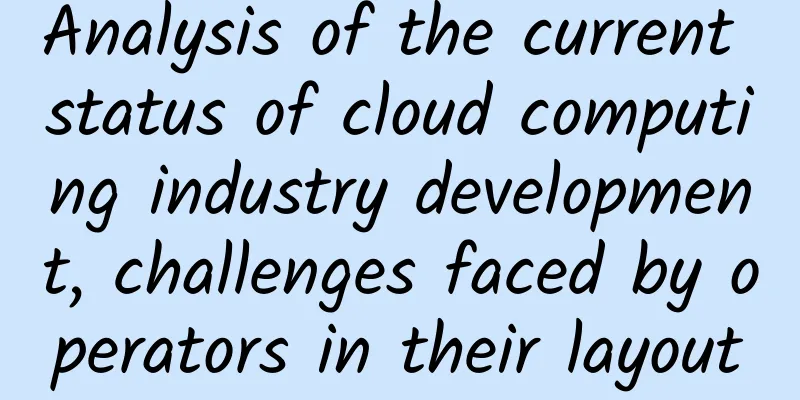How to promote digital transformation? American communications giant AT&T teaches you a few tricks!

|
Legacy systems are as much a drag on telecom operators as they are in any other industry. That’s the case at AT&T Communications, which is in the process of overhauling its technology infrastructure and processes to better support 5G networks and other emerging technologies. Since joining AT&T from WarnerMedia in 2020, CTO Jeremy Legg has established a new department to operate IT, software, security and data architecture. This technology team has begun upgrading infrastructure and processes to improve employee experience, including consolidating data centers, migrating internal applications and systems to cloud providers, simplifying data functions to make the business more agile, and integrating front-end and back-end services and databases while phasing out legacy applications. For example, when Legg first joined, AT&T had more than 7,000 applications - the result of several mergers and acquisitions over the past few decades, but that number has begun to shrink as Legg has moved more computing workloads to the public cloud. "The rise of public cloud provides an opportunity to retire some applications and move to new target architectures," Legg said. Here are a few tips for successful digital transformation shared by Legg. 01 Narrow the gap between IT expectations and business expectationsLegg worked with the business to develop multi-year roadmaps, and he knew that IT and the business were looking at the same problem from different perspectives. IT leaders looked at milestones, including which technologies the company would adopt or retire and when, while business leaders wanted to know ROI (return on investment) goals and "when the cost curve bends in favor of the acquired technology." Legg made it his mission to ensure that IT and the business were aligned on the roadmap.
Jeremy Legg, CTO, AT&T Communications “You can set a very clear guideline and break the work down into actionable pieces that leaders can execute on,” Legg says. It’s critical to measure and track progress along the way, including through KPIs (key performance indicators), he adds. 02 Keep it simpleBusiness people rarely care about technology, as long as the underlying technology can bring the expected results, so don't let business people worry about the underlying technology. "The goal is to make the technology incredibly simple, minimize expenses, and increase revenue," Legg said. "You can't expect business people to interpret the technical architecture. You have to make the technical architecture incredibly simple so that business people can focus on the important work." 03 Scale changes everythingIn an environment where 200,000 employees serve 100 million customers, implementing changes that affect all employees requires carefully coordinated communications and world-class change management. "The way you communicate, the frequency of communication, how you get the message across, is completely different at scale," Legg said. "You just can't bring 200,000 people together." From a technical perspective, Legg's team consolidated hundreds of databases and migrated 100 petabytes of data to the cloud. It was critical to stress-test these systems to ensure they could support real-time usage scenarios, not just static data. "You have to look at this from a completely different perspective from an architectural perspective." 04 Don’t skimp on retrainingThe full cloud migration meant AT&T had to retrain its workforce. Legg’s team spent months transitioning employees who were used to accessing Microsoft Outlook email from their desktops to Microsoft Office 365, including teaching them to access email from their smartphones. But Legg said that if he could start over, he would have trained employees on the target technology and architecture before the transformation. "It's much easier to get employees on board if they understand the vision and technical goals," Legg said. 05. Automate as much as possibleRetraining and hiring alone won’t solve the tech workforce’s problems, which is why Legg said he’s a big proponent of automation, including using artificial intelligence and machine learning to complete tasks more efficiently. “Whether it’s developing the right applications, solving problems, or doing different types of analysis, automation, machine learning, and artificial intelligence are essential,” Legg said. “The tech job market is tight and salaries are high — you can’t hire enough people fast enough, and it’s not a cost-effective way to do it.” While the adoption of automation may result in some loss of work for employees, Legg said good organizations will retrain those employees for higher-value work, such as customer service. 06. Tie your efforts to real business outcomesFor too long, business leaders have struggled to make sense of data scattered across multiple systems. Legg’s team streamlined databases and aggregated data stored in these silos to form a single view of customers, enabling more accurate sales outlook forecasts. Business unit employees can use tools like Microsoft Power BI to create dashboards that reflect these insights. Today, boards of directors and CEOs are more willing to invest in technology that has a clear link to business outcomes, according to new Gartner IT spending research. "Now more than ever, there needs to be a closer partnership between business and technology," Legg said. "One cannot succeed without the other." Author: Clint Boulton is a senior writer for CIO.com, writing about IT leadership, the CIO role, and digital transformation. Original URL: https://www.cio.com/article/3625588/ 6-digital-transformation-tips-from-atts-tech-chief.html |
>>: The past and present of SRv6
Recommend
Will remote work boost unified communications interoperability?
As more employees work remotely from home during ...
E-commerce past | Farewell to public domain traffic
[[420018]] It is not difficult to see that 2020 i...
Year-end review: 2020 network communication "three major" keywords
In 2020, the COVID-19 pandemic spread wildly arou...
From the industry, to the industry | Huawei's China Government Business "knowledgeable" image is officially released
On June 22, Huawei China Government Business offi...
Configuring 802.1x Remote Authentication
Topology Specification Applicable to all versions...
Who invented Ethernet? Do you know?
On April 7, 1946, the year after the end of World...
Do you know how wireless networks developed?
MediaTek recently released its flagship 5G mobile...
AI helps smart cities upgrade, Huawei's "Urban Intelligence" makes cities more vibrant
[51CTO.com original article] In the era of digita...
How to connect multiple Ethernet switches?
Ethernet is not a new technology as it has been u...
Which of the three major operators has the highest user complaint rate? This data tells you
Recently, the Carrier World Network and the China...
If you want AI, come to Chongqing Smart Expo! Huawei brings two "magic weapons" to in-depth exchanges on the intelligent industry
[51CTO.com original article] On August 23, the th...
NTT and Cisco team up to provide integrated collaborative communications solutions
NTT and Cisco jointly provided an integrated coll...
China's commercial Wi-Fi market size exceeds 4.1 billion yuan, analysis of the three major development trends of the industry
Commercial Wi-Fi is a wireless Internet service p...
How does DNS work? See how this "translator" converts domain names and IP addresses
[[277197]] 1. What is DNS? DNS (Domain Name Syste...
AIOps implementation revealed! See how three WOT experts make AIOps a reality
[51CTO.com original article] On June 21, the WOT2...









